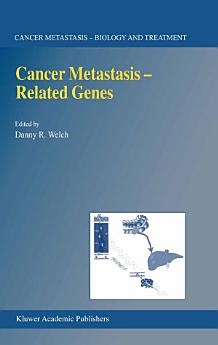Cancer Metastasis — Related Genes
D.R. Welch
เม.ย. 2006 · Cancer Metastasis - Biology and Treatment หนังสือเล่มที่ 3 · Springer Science & Business Media
eBook
270
หน้า
reportคะแนนและรีวิวไม่ได้รับการตรวจสอบยืนยัน ดูข้อมูลเพิ่มเติม
เกี่ยวกับ eBook เล่มนี้
Being diagnosed with cancer is devastating. But when the cancer cells have to spread to form secondary colonies, the prognosis for the patient is worse. If meaningful improvements in survival are to occur, then control of metastasis will be a foundation. Relatively little is known about the control of the metastatic process at the molecular level. This volume begins to explore our current knowledge regarding the underlying molecular and biochemical mechanisms controlling the metastatic phenotype. While all of the authors attempted to put their findings into a context for translation to the clinical situation, the state-of-the-art does not fully allow this. Nonetheless, we write these summaries of our work as an early effort toward that end. I am grateful to all of the authors who have contributed generously of their time and energies to make this volume a reality. To metastasize, neoplastic cells dissociate from the primary tumor, enter a circulatory compartment (typically lymphatics or blood vasculature), survive transport, arrest, exit the circulation and finally proliferate at a discontinuous site in response to local growth factors. Unless cells accomplish every step of the metastatic cascade, metastases cannot develop. The process is highly inefficient, i. e. ,
ให้คะแนน eBook นี้
แสดงความเห็นของคุณให้เรารับรู้
ข้อมูลในการอ่าน
สมาร์ทโฟนและแท็บเล็ต
ติดตั้งแอป Google Play Books สำหรับ Android และ iPad/iPhone แอปจะซิงค์โดยอัตโนมัติกับบัญชีของคุณ และช่วยให้คุณอ่านแบบออนไลน์หรือออฟไลน์ได้ทุกที่
แล็ปท็อปและคอมพิวเตอร์
คุณฟังหนังสือเสียงที่ซื้อจาก Google Play โดยใช้เว็บเบราว์เซอร์ในคอมพิวเตอร์ได้
eReader และอุปกรณ์อื่นๆ
หากต้องการอ่านบนอุปกรณ์ e-ink เช่น Kobo eReader คุณจะต้องดาวน์โหลดและโอนไฟล์ไปยังอุปกรณ์ของคุณ โปรดทำตามวิธีการอย่างละเอียดในศูนย์ช่วยเหลือเพื่อโอนไฟล์ไปยัง eReader ที่รองรับ







